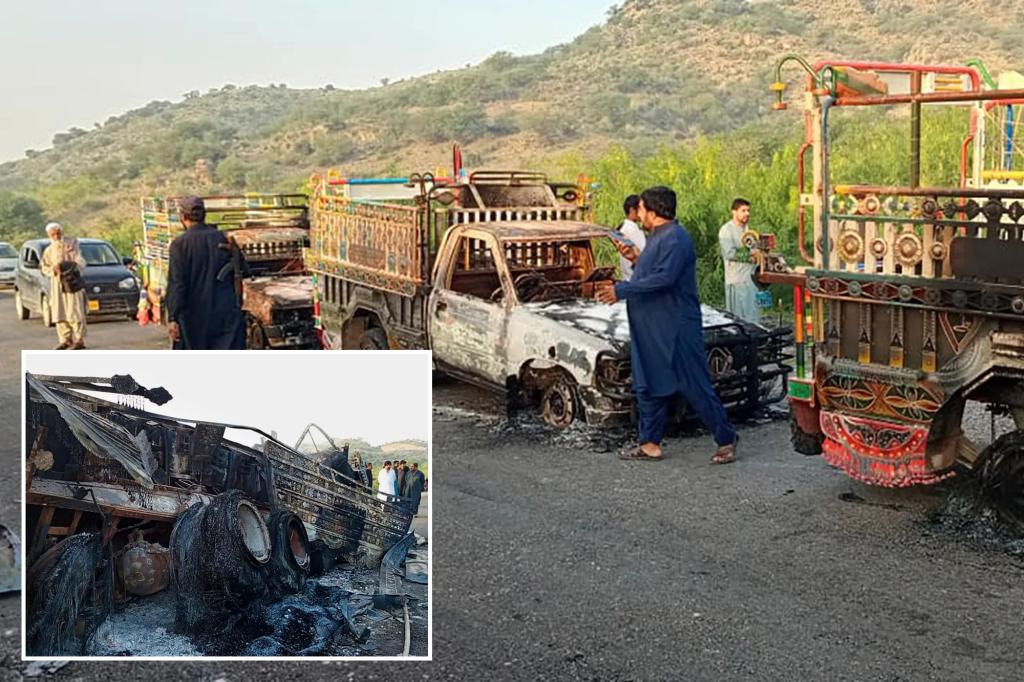Gunmen carried out deadly attacks in Baluchistan province in southwestern Pakistan, killing a total of 32 people. In Musakhail district, 23 passengers were taken from buses, vehicles, and trucks by gunmen and later shot. Another nine people, including police officers and passersby, were killed in a separate attack in Qalat district. Militants also blew up a railway track in Bolan district and attacked a police station in Mastung district.
The Baluch Liberation Army, a separatist group, had warned people to stay away from highways as they launched attacks on security forces in the province. Separatists often target individuals based on their ethnicity or region of origin, commonly abducting or killing those from Punjab or other provinces. This tactic was seen in previous attacks in Gwadar and on a bus in April, both claimed by the BLA. It is believed that these attacks are intended to weaken the economy of Baluchistan and, in turn, Pakistan as a whole.
President Asif Ali Zardari and Interior Minister Mohsin Naqvi condemned the attacks as barbaric and promised that those responsible would be brought to justice. The separatists’ actions are seen as an attempt to hinder development efforts in Baluchistan. The province has been the site of a long-standing insurgency, with militants targeting workers and individuals from the eastern Punjab region to force them to leave the area.
Syed Muhammad Ali, a security analyst, stated that attacks by separatists in Baluchistan are aimed at weakening the province economically, which would ultimately weaken Pakistan as a whole. These attacks are seen as a threat to the development work being carried out in the region. The presence of both separatist groups and Islamic militants in Baluchistan has led to ongoing violence and destabilization in the area.
Despite the condemnation of the attacks by government officials, it is evident that the security situation in Baluchistan remains precarious. The targeting of civilians based on their ethnicity or region of origin is a disturbing trend that further exacerbates tensions in the region. Efforts to address the root causes of the insurgency and promote peace and stability in Baluchistan must be prioritized to prevent further loss of life and economic disruption in the province.
The attacks in Baluchistan highlight the ongoing challenges faced by the Pakistani government in addressing violent extremism and separatism in the region. The need for a comprehensive approach that addresses the grievances of marginalized communities and promotes inclusivity and economic development is crucial to achieving long-lasting peace in Baluchistan. The recent attacks serve as a stark reminder of the importance of addressing these underlying issues to prevent further violence and instability in the region.


